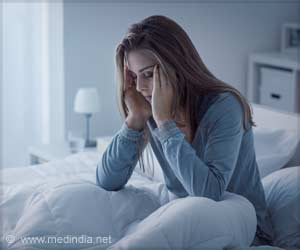
Ensuring adequate sleep is essential for maintaining vital health functions, particularly for the growth and development of adolescents and young adults. However, a recent study from the University of Toronto’s Factor-Inwentash Faculty of Social Work has identified a correlation between insufficient sleep and symptoms of muscle dysmorphia—an escalating concern among young individuals characterized by a pathological pursuit of muscularity.
Published in the journal Sleep Health, the study surveyed over 900 adolescents and young adults.
Sleep Matters in Teenagers
“Poor sleep can have significant negative impacts for adolescents and young adults, including increased negative mental health symptoms,” says lead author Kyle T. Ganson, PhD, MSW, assistant professor at the University of Toronto’s Factor-Inwentash Faculty of Social Work. “Poor sleep among those who experience muscle dysmorphia symptoms is concerning as it may exacerbate the functional and social impairment these individuals commonly report, as well as increase suicidal thoughts and behaviors.”
Prior research supports this cause for concern. Past studies indicate that on average adolescents and young adults are sleeping less than the recommended 7 to 10 hours per night. A plethora of research has also found that poor sleep is a marker of mental health diagnoses and associated with symptoms of anxiety, depression, and psychosis.
Did You Know?
Individuals who exhibited heightened symptoms of muscle dysmorphia reported fewer hours of sleep and encountered increased challenges in falling asleep or maintaining sleep.
The mechanisms connecting greater muscle dysmorphia symptomatology and poor sleep may be multifaceted, say the study’s authors. For example, those who have greater intolerance for their appearance, who engage in obsessive thinking and who experience anxiety related to one’s body and muscularity may experience impaired sleep. As well, for some, sleep may be displaced by physical activity, as an individual engages in muscle-building exercise during the evening hours so as to not interfere with occupational responsibilities.
“Individuals experiencing symptoms of muscle dysmorphia may be more likely to use and consume dietary supplements that are marketed for improving workouts, increasing muscle mass, and accelerating muscle recovery,” says Ganson. “These products tend to have high levels of caffeine or other stimulants which may negatively impact sleep. In addition, anabolic-androgenic steroids, which are commonly used among people with muscle dysmorphia, have also been shown to negatively impact sleep.”
The authors underscore the need for healthcare professionals to be alerted to these findings given the continued emphasis of the muscular body ideal and pursuits of muscularity among adolescents and young adults. Additionally, future research is needed to continue to explore the connection between muscle dysmorphia symptoms poor sleep to ensure a holistic care approach.
Source-Eurekalert


